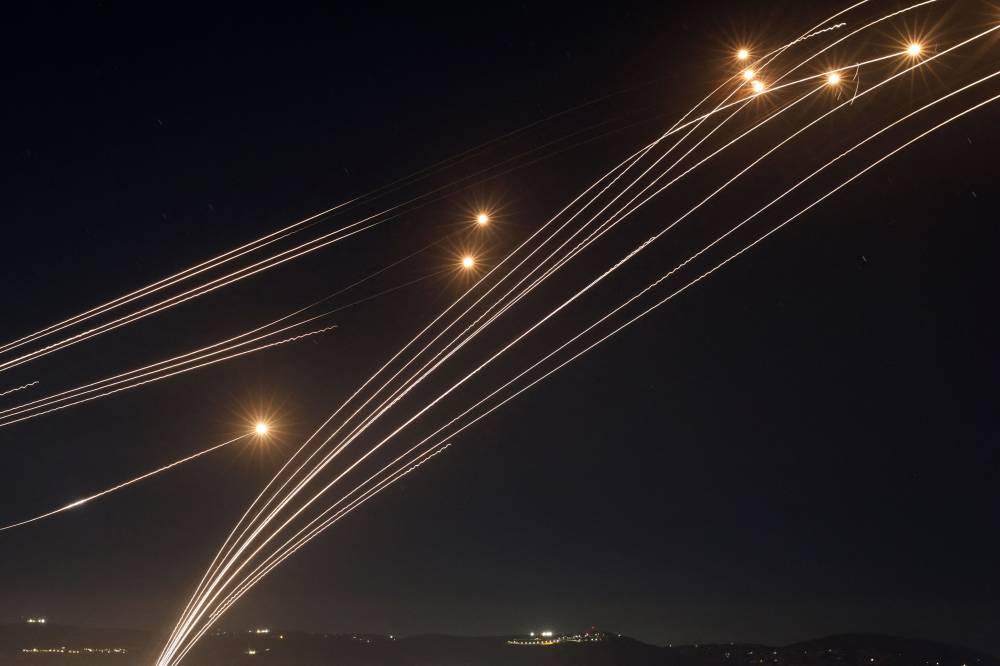Fears of Mideast war grow after Hamas chief’s killing

BEIRUT—Middle East tensions soared as Iran and its allies readied their response to the assassination of Hamas’ political leader, blamed on Israel, spurring fears of a regional war.
Israel ally the United States said it would move warships and fighter jets to the region, while Western governments called on their citizens to leave Lebanon—where the powerful Iran-backed Hezbollah movement is based—and airlines canceled flights.
The killing this week of Hamas leader Ismail Haniyeh in Tehran, hours after the Israeli assassination of Hezbollah’s military chief in Beirut, has triggered vows of vengeance from Iran and the so-called “axis of resistance.”
Iran-backed groups from Lebanon, Yemen, Iraq and Syria have already been drawn into the nearly 10-month war between Israel and Palestinian militant group Hamas in Gaza.
Israel on Saturday again traded fire with Hezbollah, carried out a deadly raid in the occupied West Bank, and struck a school compound in Gaza City in an attack that the Hamas-ruled territory’s civil defense agency said killed at least 17 people.
Numerous schools turned into displacement shelters have been hit across Gaza in recent weeks, with Israel insisting the facilities had been used by militants. Hamas denied using civilian infrastructure for military activities.
Haniyeh was buried on Friday in Qatar, where he had been based. Israel, accused by Hamas, Iran and others of carrying out the attack, has not directly commented on it.
Iran said on Saturday it expects Hezbollah to hit deeper inside Israel and no longer be confined to military targets.
US strike group
The Pentagon said it was bolstering its military presence in the Middle East to protect US personnel and defend Israel.
It said an aircraft carrier strike group led by the USS Abraham Lincoln would be deployed, as well as additional ballistic missile defense-capable cruisers and destroyers and a new fighter squadron.
US President Joe Biden, at his beach home in Delaware, was asked by reporters if he thought Iran would stand down.
“I hope so,” he said. “I don’t know.”
Soon after, Hezbollah announced it had fired dozens of Katyusha rockets at the northern Israeli settlement of Beit Hillel.
Israel’s army said early Sunday about 30 projectiles had been launched from southern Lebanon into Israel, with most of them shot down and no injuries reported.
In Beirut, 20-year-old student Diana Abu Aasel told Agence France-Presse (AFP) she feared “something bad will happen to my family and friends.
“If there is war, I don’t think I will be able to bear staying” in Lebanon, she said.
Crowds of thousands rallied on Saturday in Morocco, Jordan and Turkiye to denounce Haniyeh’s killing and show solidarity with Palestinians, AFP correspondents reported.
Haniyeh’s killing is among a series of attacks since April that have heightened fears of a regional conflagration.
His death came hours after Israel struck south Beirut, killing Hezbollah military commander Fuad Shukr.

‘Leave immediately’
Both Britain and the United States on Saturday urged their citizens in Lebanon to leave immediately.
Canada told its nationals to avoid all travel to Israel due to the “unpredictable security situation.”
Israel has vowed to destroy Hamas in retaliation for its unprecedented Oct. 7 attack which triggered war in Gaza and resulted in the deaths of 1,197 people, mostly civilians, according to an AFP tally based on Israeli official figures.
Militants also seized 251 hostages, 111 of whom are still held captive in Gaza, including 39 the military says are dead.
Israel’s campaign against Hamas has killed at least 39,550 people in Gaza, according to the territory’s health ministry, which does not give details of civilian and militant deaths.
AFP is one of the world's three major news agencies, and the only European one. Its mission is to provide rapid, comprehensive, impartial and verified coverage of the news and issues that shape our daily lives.





















